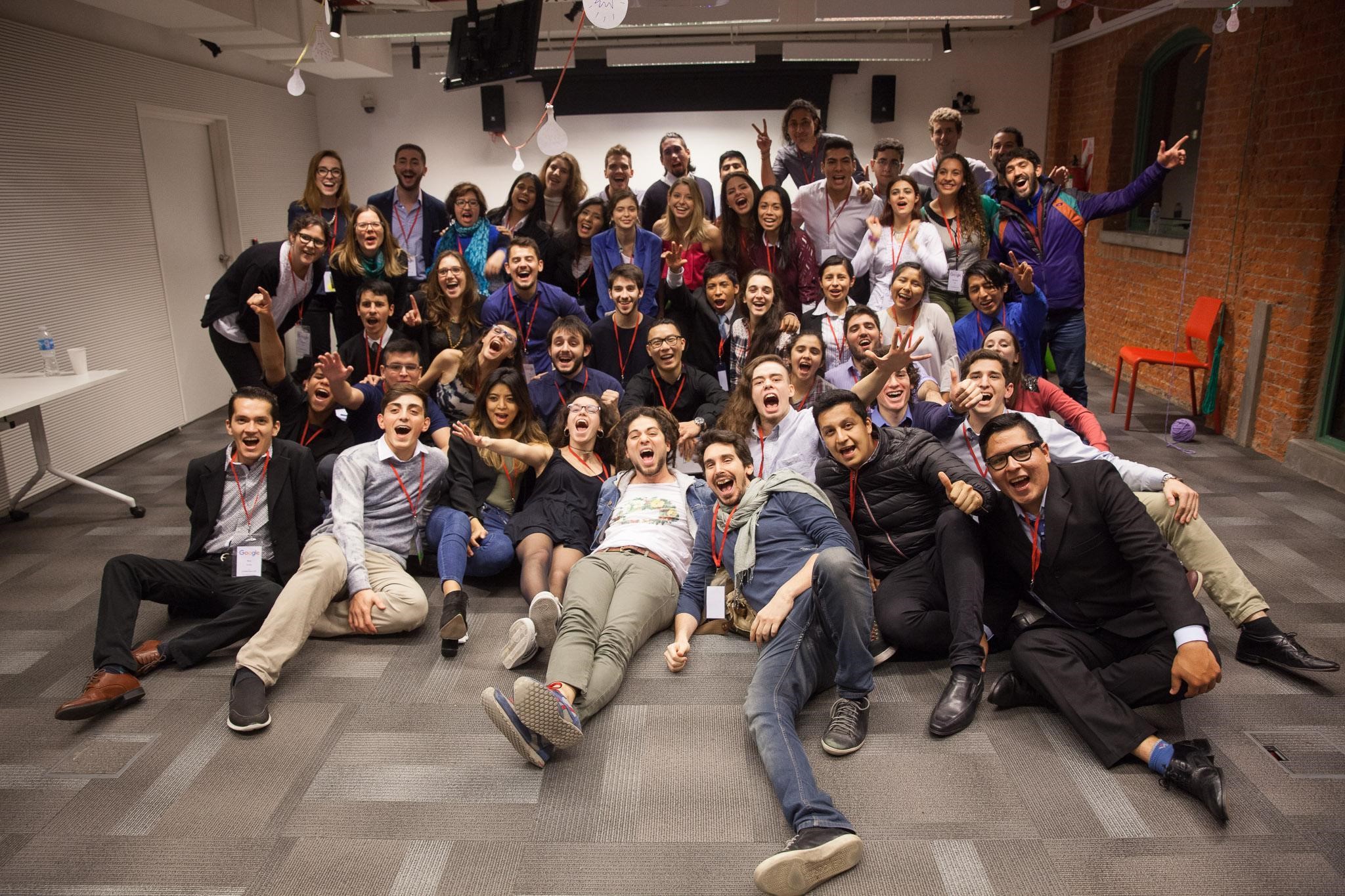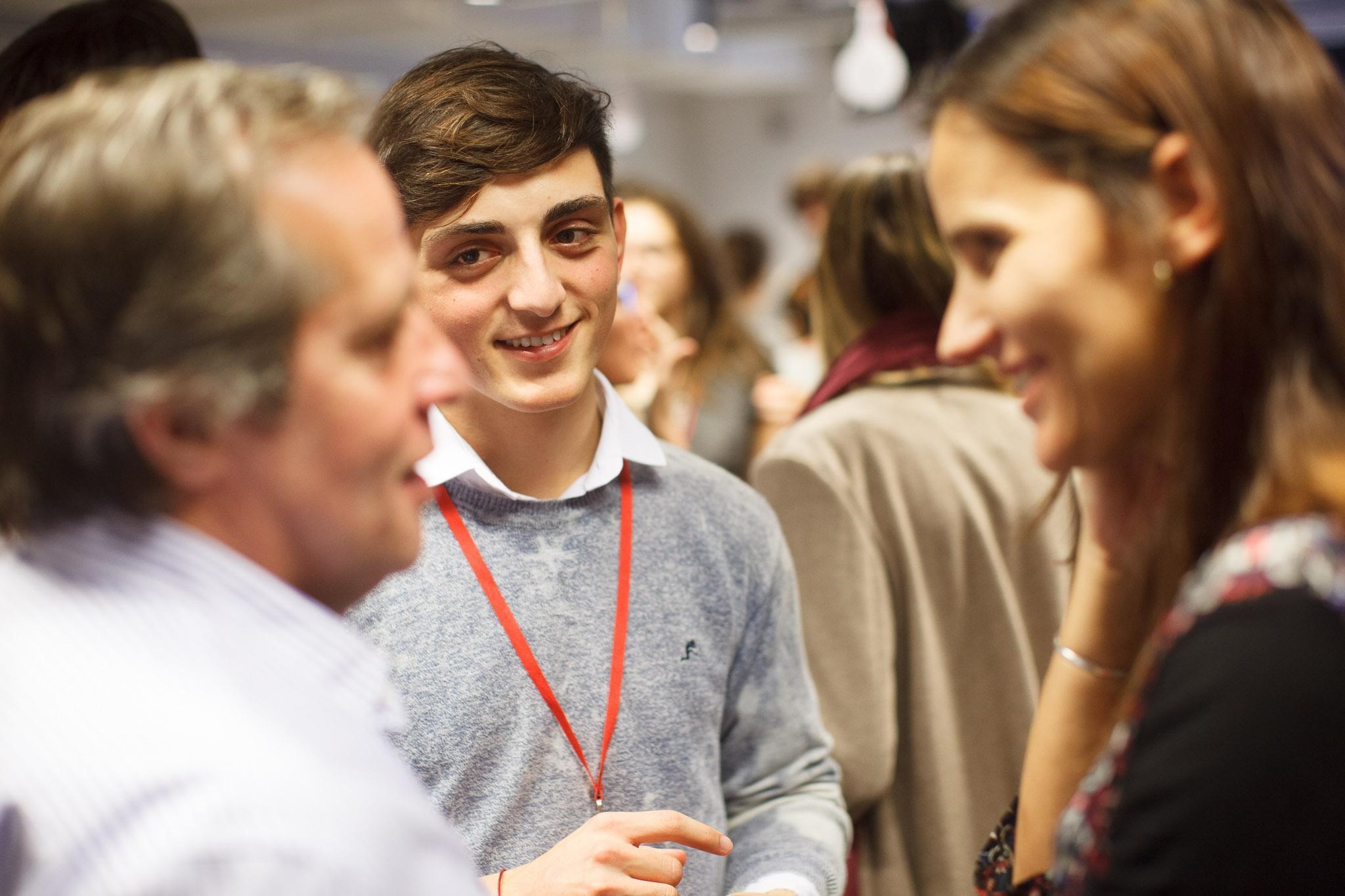The “Social Innovation Lab” was born in early 2016 as an initiative of the “Entrepreneurship and Social Innovation¨ agency in the General Board of Directors of Entrepreneurs from the Buenos Aires City Government.
This initiative holds the conviction that entrepreneurship can be a way for inclusion and understanding of the practice and entrepreneurial training as one in which truly sustainable projects can be created and maintained.
The Lab comes in response to the necessity of motivating social innovation both inside and outside of the City Government. In the Lab we consider social innovation as a new way to address existing social issues with a different, inclusive, and disruptive perspective.
In short, it is a space of encounter, where innovative solutions for social problems arise and social impact of existing initiatives is strengthened.
The main objective is to:
- Promote a major social impact and co-create creative solutions.
- Empower entrepreneurs as agents of positive social change.
- Introduce basic concepts of triple added value (environmental, social, and economic) and social innovation.
To achieve these objectives, the Laboratory team works applying agile methodologies to solve problems in a disruptive and creative way.
Youth Committed to a Better World

Since 2016, we have convened the Social Innovation Youth Laboratory, aimed at young people between 16 and 24 years old. Three editions have already been completed with more than 150 youth participants. Thanks to these workshops, with a duration of 12 classes over two months, we arouse interest in entrepreneurship among young people and, at the same time, we collaborated in the development of what we call “21st Century Skills” among young people. We consider these skills key to preparing youth for the future labor market.
All three editions of Young Lab were done in conjunction with the Eidos Foundation, whose main purpose is to empower young people through innovative educational experiences. Every edition of the Youth Lab has different approaches for attracting different allies.
First Edition
The First Edition was held between October and November 2016 and was hosted by the National Youth House, situated at Villa Devoto, Buenos Aires. Its main aim was to strengthen the vocational profile of each participant and to awaken the entrepreneurial spirit among young people.
Second Edition
The Second Edition was orientated on entrepreneurship and the use of exponential technologies. It was held on Puerta 18, a free space of artistic creation and technology aimed at young people between 13 and 24 years.
Third Edition
The Third Edition was held at Telefónica Foundation. It was orientated towards the development of applications combining training in entrepreneurial methodologies with soft skills such as organization, critical thinking, creativity, effective communication, and theoretical training practice in technological and computer tools.
Other allies that participated during the Third Edition were: Google, Microsoft, Mercadolibre, among others, with a collaboration of information, experiences, and materials related to different topics including youth employment, entrepreneurship, and education.
During the meetings of Youth Lab, the participants detect a social and/or environmental problem and are grouped according their interest in those detected themes.
Later, they develop a project to find new solutions that utilize social and/or environmental problems they have chosen to address by applying new technologies. This process helps participants to develop key skills such as creativity, oratory, teamwork, and leadership. They also acquire methodologies such as Design Thinking and Lean StartUp.

The last encounter is a simulation of an investment round where the participants have to present by pitch the project they have been developing during the Youth Lab to governmental authorities, recognized entrepreneurs, and representatives of large companies.
After the Youth Lab ends, the participants who wish to, receive six months of mentoring to carry out their projects and/or continue developing soft skills.
To learn more about the Youth Lab experience access a video of their work here.
Impactec, Empowering Innovation, and Technology
Impactec is a competition that brings together innovation and positive impact. We created it as a way to encourage the development of technological startups that aim for triple impact. There have been five editions to date.
During these first five editions, Impactec aimed to detect the most innovative entrepreneurs from Buenos Aires City and give them scholarships to participate at Global Solutions Program in Singularity University, Silicon Valley.
This year, in its sixth edition, Impactec will discover the most innovative startups with social impact. After its three stages -- online interviews, personal interviews, and Demo Day (demonstration day where participants present their startups to a jury of experts) -- the selected Startup will receive ten weeks of incubation at the SU Ventures Incubator Program at Singularity University.
The competition is open to anyone who is interested in participating (as long as they have an address in Buenos Aires City), for more information please email This email address is being protected from spambots. You need JavaScript enabled to view it.. You can also watch a video of the experience here.
Spreading Triple Impact
Motivating the emergence of triple impact ventures is one of the main concerns of the Social Innovation Laboratory. That is to say, companies that in any of the stages of production or commercialization have an economic, social, and/or environmental impact.
This type of business not only pursues profitability but also collaborates with the world. "An Impact Entrepreneur has at the heart of his business not only the search for economic value, but the generation of a positive impact on social and environmental issues. In other words, this type of business does not only pursue profit, but also proposes a business model that changes production and consumption patterns in our society, because they make up a triple added value: environmental, social, and economic development."1
Communicating these ventures can be complex because in general we are accustomed to the fact that companies generate profits and NGO's generate social and environmental impact. What B Companies or the projects with impact propose is to go further, combining both proposals.
As part of the entrepreneurship ecosystem we met lots of success stories, interviewed social entrepreneurs, talked to B companies founders, and we finally collected all these experiences into a manual for entrepreneurs. Together with the Space of Inclusive Business of Ditella University, we collaborated to “undertake with impact.” This document provides a guide of value information, experiences, and practical exercises for all those who want to start their own business with social and/environmental impact.
The manual can be downloaded at this link.
Potentializing Social Inclusion Projects
Lab teams also worked with the Program of Inclusive Entrepreneurship (El Programa de Integración Emprendedora) and Entrepreneur Pact (El Pacto Emprendedor) which are part of the same area.
El Programa de Integración Emprendedora (P.I.E,): Promotes the strengthening and training of entrepreneurs and/or future entrepreneurs, who find themselves in a situation of social and economic vulnerability, through general and specific training instances, as well as -- in the case of entrepreneurs with an ongoing venture -- its insertion in new marketing spaces.
El Pacto Emprendedor: Is a program that seeks to expand the social capital of entrepreneurs who are part of the entrepreneurial ecosystem of the City of Buenos Aires generating new links and breaking down prejudices to achieve genuinely more inclusive and inclusive entrepreneurial practices. Horizontal mentoring relationships are proposed within a period of six months, seeking a minimum of monthly meetings (one time over six months) and setting objectives with respect to the entrepreneurship of the entrepreneur and the mentee.
Based on three axes: relevancy, application of agile methodologies during problem solving, and measuring social impact, the Laboratory works transversely and in conjunction with these programs.
How do we achieve this? We developed a database that integrates information of all of our programs. During 2017 we conducted 40 semi-structured surveys and interviews so we could get to know better the beneficiaries of the programs and detect opportunities for improvement.
Some Conclusions
Since its creation in 2016 to date, the Social Innovation Lab has managed to reach more than 150 young people helping them to develop communication skills, creativity, teamwork, and resilience, and helped to connect them with the entrepreneurial ecosystem, different businesses, and governmental references.
We also continued with Impactec, with five editions, and seven selected entrepreneurs who could develop their projects in Singularity University.
Together with different social and academic references, we managed to promote “entrepreneurship with impact” as a concept to offer new, sustainable business opportunities through the “Manual Emprender con Impacto.” We already have 200 manuals distributed and we are preparing the next run.
Although the Lab has been operating for a short time, these type of tasks are key to facing social problems from a different perspective and we are very positive about future results. Thanks to these experiences we discovered that the key to carrying out an innovative policy is to be able to involve all of the actors that are part of a given problem.
In 2018 we plan to continue researching and disseminating our proposal. Our objective is to generate wider participation and synergy in the entrepreneurial ecosystem. To achieve this we will carry out a market study on conscious consumption in order to raise awareness in our community. We are also planning to continue to empower young people, government areas, third sector organizations, and small businesses so that they can develop and think about social impact projects to build, together, a more just and equitable society.
Footnotes
1Manual “Emprende con Impacto”, Gobierno de la Ciudad de Buenos Aires, Buenos Aires, 2017.


